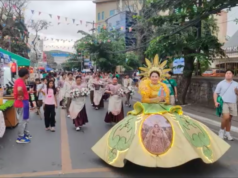This fear was expressed by the Kilusang Magbubukid ng Pilipinas (KMP) amid moves in Congress to revive CARP allegedly to “complete” the program.
It noted that proponents of House Bill 4296 or the bill seeking to extend the CARP claimed that “the bill was only for the completion of CARP and not an extension.”
KMP Secretary General Antonio Flores accused the proponents of “spreading lies.”
“Their so-called ‘CARP completion’ line on House Bill 4296 is totally illusory and deceptive. A sham, anti-peasant, and pro-landlord program designed to strengthen landlord control over vast haciendas can never complete land distribution,” said Flores.
The KMP said that “the renewed push to extend the sham CARP will only legitimize and hasten the exemption, exclusion, and land-use conversion, of the more than 700,000 hectares after these are issued notices of coverage.
This was what happened in the Araneta Estate in San Jose Del Monte, Bulacan and Hacienda Dolores in Porac, Pampanga among other agricultural lands.”
“After the issuance of a notice of coverage, petitions for exemption and exclusion by big landlords and corporations will follow and, as expected, the DAR using the sham CARP will grant the petitions legitimizing and strengthening landlord control over the lands,” Flores said.
Citing government’s own figures, the KMP said that “a large chunk or 44 percent of the Department of Agrarian Reform’s (DAR) accomplishment are public lands or non-private agricultural lands.”
“Farmers were made to pay amortizations for these public lands and after completion of their payment or while the farmers are still paying, their so-called certificates of ownership are being cancelled by the DAR citing anti-peasant provisions on exemption, exclusion, and land-use conversion of the sham CARP itself,” Flores noted.
He also cited the case of farmer-beneficiaries in more than 12,000 hectares of public lands in Calatagan, Batangas whose certificates of land ownership award (CLOAs) were cancelled to give way to a real estate project of an affluent and influential family.
The KMP also said that “the DAR’s 56 percent accomplishment on the acquisition of private agricultural lands is highly questionable. “
“The DAR’s accomplishment on private agricultural lands is also deceiving. It is inclusive of non-land transfer schemes like the notorious stock distribution option (SDO), leaseback agreements, joint ventures, and other schemes where control over the lands remains with agribusiness corporations, and unresolved agrarian disputes involving millions of hectares of lands,” Flores said.
He noted that “in 2013, DAR figure shows that there are 494,945 agrarian law implementation cases resolved/ disposed/processed by the agency.”
“Even agrarian cases resolved by the DAR are still questionable. The data do not state if the cases were decided in favour of farmers or the landlords, or, if the case were appealed to a higher court,” Flores said.
The KMP reiterated calls for Congress for the passage of House Bill 252 or the Genuine Agrarian Reform Bill (GARB) to break landlord control and monopoly of lands.
“GARB is the exact opposite of the bogus CARP. It will put an end to land monopoly and implement the free distribution of lands to the tillers,” the KMP said.
The peasant group also announced tomorrow’s launching at the University of the Philippines (UP) of the Philippine Land Reform Movement (PLRM), the biggest and broadest movement of land reform advocates ranging from farmers, workers, academics, economists, lawyers, church people, youth, peace advocates, and nationalists in the business sector.
“No land reform program exists and farmers are being offered with a fake solution to the land problem. Up to now, social inequities and exploitation of farmers persists. It is therefore a moral imperative and a political necessity for the Filipino people to link arms with the peasantry and the rural people to heighten the struggle and campaign for a new land reform program,” the KMP said.
The PLRM calls to put an end to landlord monopoly of lands, advocate a genuine land reform program that addresses farmers’ economic, political, and social emancipation. It is a movement that advocates genuine rural development, promotes national industrialization, and actively involves in the struggle for national sovereignty, peace, democracy, and social change.




